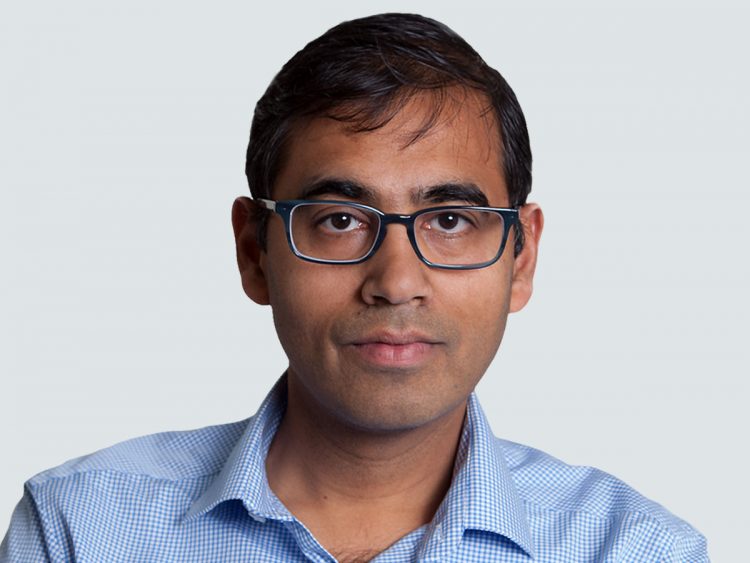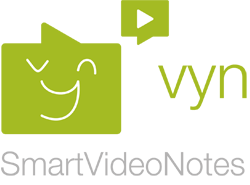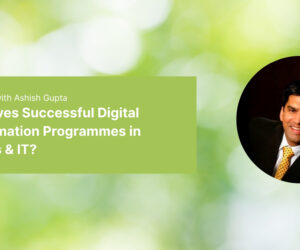
Ashutosh Garg, CEO and co-founder of Eightfold, is reimagining talent management from top to toe using machine intelligence. We sat down with Ashu to understand how the workplace is changing, and how artificial intelligence is helping to create a better and fairer job market, bringing benefits to employers and employees alike.
What inspired you to set up Eightfold?
Having worked at companies of all sizes, and having grown up in a small town in India, I realised how important employment is for people’s lives. You spend most of your waking time in the office, and getting the right opportunity can make all the difference to your career, to your life. Today, you end up getting employment based on who you know, not what you know. If you’re seeking guidance, advisors have limited data on what opportunities exist for you.
In the age of AI and data, that should change. It should be more of a data-driven process, instead of everyone relying on a few relationships here and there. I really wanted to see what we could do to change employment in society – because employment is the backbone of society. That is what inspired eightfold.
What is that change that you’re looking to create?
First of all, the employment industry is already changing. It is no longer the employment industry of our parents’ generation: People would join a company, work there for 35 years, then retire, but today, the average tenure has shrunk to 2-4 years. Secondly, it used to be that when you joined a company, you might get a 3-year training program. This doesn’t work anymore because within two years you are already out of the loop. The half-life of a skill is only 3-4 years, instead of 25 or more. You can no longer just go to college and expect to keep working with that qualification for the rest of your life. You need to learn on a daily basis.
So now, as business leaders, we need to change our thinking. In this global world, we can’t limit ourselves to a few connections, but give opportunity to a broader set of candidates. As an example, if you’re in the US, you might not be able to easily hire people out of Stanford or MIT because of the competition. But guess what – there are plenty other colleges in the world that have great graduates you can choose from. You may not be able to hire people who know the latest and greatest in data science or machine learning, but what you can do is hire people who can very quickly acquire those skills.
Another example, since people are thinking of switching jobs every 2-4 years, as a leader you can change your mindset and encourage your employees to look for opportunities within your own company. At the same time, change your expectations: You can’t expect people to stay with the company for the rest of their lives, but what you can expect is to have a life-long relationship, so that at every turn in their career they’re thinking of coming back to you.
How did you then reimagine the whole process of talent management?
Very good question. We changed its very foundations. The way things are now, generally, you tell your hiring manager you’re looking for people with a certain skill. Then, they go seek out candidates who have done work involving that skill.
The way we are reimagining things is, instead of asking the hiring manager to find people who are already using the skill, we’re asking for people who have the potential to learn it.
That’s the fundamental difference: Knowing what they can do, not what they’ve already done.
Using machine learning, we can make estimates on how a person’s skill set is likely to change over time: What is the next skill they are likely to acquire? What is the next tool they are likely to learn? Then you can match them with a job opportunity based on predictive analytics, instead of only limiting yourself to the people who know this skill already.
This is similar to how colleges do admissions – they are trying to pick people who have the potential to be good at something, often based on how diverse their previous experience is: The more different things they have done already, the higher the chances they are able to acquire new skills quickly. Somehow, this mindset of looking at a person’s potential and likely next steps hasn’t made its way into businesses.
How was this inspired by your own career journey?
There’s definitely an element of this mindset tied into my own personal story. When I was graduating from Urbana-Champaign with my PhD in Machine Learning, I had two job offers: One from IBM Watson, another from IBM Almaden*. At Watson they wanted me to work on speech recognition, which is what I had been doing in my PhD, and at Almaden they wanted me to apply machine learning to text mining, which I had never done. While the basic requirement of both was machine learning, I was more familiar with one than the other. I preferred to go and do something that I’d never done before, namely text mining. A year later I was interviewing for a software engineer role at Google. In my very first interview, I told them that coding was not my forte, so I asked them to please not interview me on coding, but instead that they interview me on what I had done in my previous role. If I could do that well, maybe I could do the coding well too. And they gave me a chance.
* Watson is IBM’s main research lab in Westchester, New York; Almaden is their Silicon Valley branch.
What do you think of psychometric testing? Where does that fit into Eightfold’s reimagined talent management process?
From my experience, I deem that the standard way of doing psychometric analysis is broken. We give too much importance to the basic traits of the people, and not enough to their will. Let’s say you’re recording this interview right now, and now you’re going to judge me based on my facial expressions: How often I’m moving my lips or my eyebrows. What if I have some dust in my eyes? What if I’m genuinely nervous? That’s fine. The fact that I’m nervous, and I’m still trying hard enough to come over here and do an interview, what about that? To me, that is the most important human trait – willpower.
Where it also stems from is I saw working at Google – and Google has published this analysis – is that there is no correlation between interview performance and job performance. Why? Some candidates of mine are phenomenally smart: Ask them any question, they will know the answer. But guess what – they just don’t want to do the work. And other candidates of mine might not be able to answer the same interview question, but they can do what is needed to get to an answer.
Psychometric tests and other point-in-time assessments are trying to evaluate you at a given moment. The problem with this is that they don’t do a good job at predicting what you can do, because they give too much importance to that moment. The way we have approached it is that, instead of doing that point-in-time decision, we collect and analyse as much information as we can about what this person has done over the years.
Any examples of where eightfold leverages AI to make a positive difference to talent management?
I think one very interesting example is around diversity. Diversity is top of mind for every CEO in the world, and one of the primary goals in employment is to remove bias from hiring decisions. I want to be truly an equal opportunity employer. I also see enough discussion on the web around whether AI algorithms are biased or not. Often the underlying question is “Are humans biased?” The answer is yes – humans have a lot of biases, and these have not changed for tens of thousands of years. We need new ways of doing things, we can’t just rely on our basic nature.
A simple example of how machine learning and AI help us is if you look at my profile to evaluate me for a job. Anything in my profile that does not matter for a job, should not be there, and AI can help to filter out those elements. The eightfold system can anonymise any information that gives away my age, gender, ethnicity, education, previous companies, and skills that are not relevant to the role. These would only add unnecessary bias to the hiring decision.
What this has done is reduce bias for our customers. What we saw is that before using our platform, there was almost 50% bias in respect to one gender.
We believe that human insight and machine intelligence work best together. What’s your take on that?
I think that is very true, and it’s a fundamental thing. Ultimately, people work with people. The number one thing that excites me about my workplace is the people I work with, and there is no replacement for that. Machines can only go so far. Our goal with using machines is only to help enterprise identify the most relevant people for their organisation. And then humans in their conversations understand whether they are comfortable working with them. So I think that applies to each and every industry, humans have certain strengths, and machines have certain strengths. Machines are very good at analysing millions of data points. Humans are really good when it comes to relationships, problem solving, and finding the best combination of these strengths together.
—
At vyn, we believe in simplifying work-life using augmented intelligence – the combination of human insight and artificial intelligence. If you enjoyed this article, you may also like our series on Demystifying Data Science, where vyn advisor Mayank Sharma explains the recent boom in data science, how businesses are using it, and pitfalls to avoid. You can learn more about Eightfold on their website.
Follow vyn on LinkedIn or Twitter to get more insights like this, or sign up to our newsletter.




Leave a reply